To support teaching around COP29 we've put together this collection of resources for use in your primary or secondary school classroom.
What is COP29?
The United Nations climate change conference for 2024, which is more commonly known as COP29 (this stands for The 29th session of the Conference of the Parties) will take place at the Baku Olympic Stadium, Azerbaijan from 11 - 22 November 2024.
Are we teaching children enough about climate change?
Teachers might also be interested to watch this panel discussion programme, originally broadcast in 2019, which features educators and experts and asks, 'Are we teaching children enough about climate change?', as well as this article by educational consultant Claire Seeley, on how to teach children about climate change.
The Regenerators. collectionThe Regenerators
Whether at home or school, The Regenerators is here to inspire children and teenagers to live a greener life and encourage others to look after the planet. By making small changes on our own, we can make a big difference together.
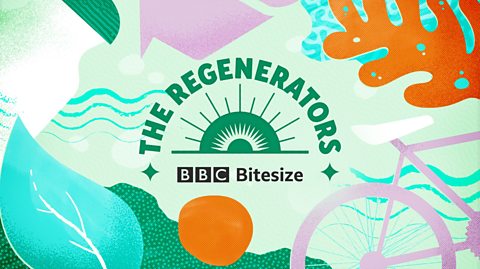
Primary resources
Explore our primary collection including a series of funky facts from Go Jetters on environment, weather and climate..
Oceans and seas. collectionOceans and seas
Three short films for 5-7 year-olds exploring the KS1 Geography topic Oceans and seas: identifying the five oceans of the world, exploring the key characteristics of fish and other marine wildlife, and considering the threat posed by plastic waste.
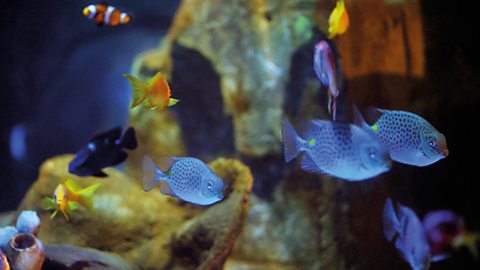
Watch again: Frozen Planet II – Science Live Lesson. videoWatch again: Frozen Planet II – Science Live Lesson
A half-hour curriculum-linked lesson for primary schools exploring the coldest places on Earth and the impact of climate change on the icy habitat of harp seals.
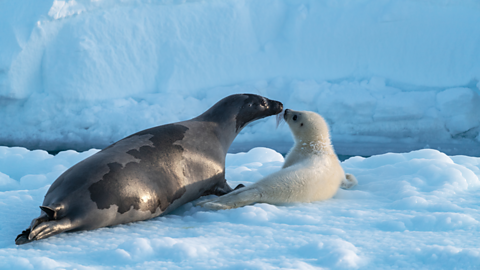
Watch again: Bitesize: The Regenerators – Climate Change Live Lesson. videoWatch again: Bitesize: The Regenerators – Climate Change Live Lesson
An interactive lesson for primary schools explaining what climate change is and inspiring children to make a pledge to help the planet.
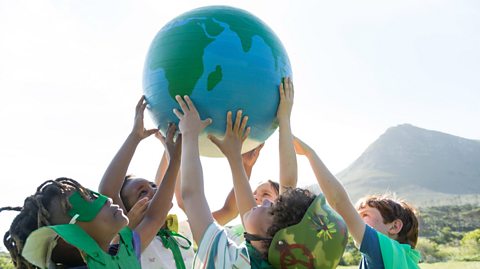
Watch again: Blue Planet – Live Lesson. videoWatch again: Blue Planet – Live Lesson
This half-hour curriculum-linked programme, originally broadcast in 2019, was created in collaboration with Blue Planet Live and was designed to help 7-11 year-olds find out what constitutes a healthy ecosystem and what the threats are to our oceans (such as plastics and overfishing).
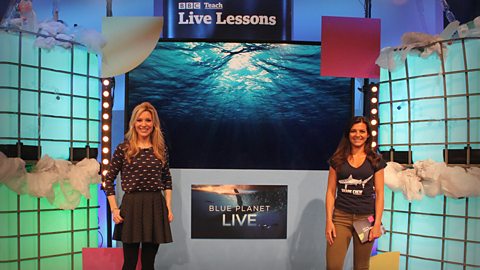
Blue Planet Live. collectionBlue Planet Live
We teamed up with Blue Planet Live to create these short films for primary schools that explore the health of our oceans and the damaging effects of single-use plastics. Chris Packham, Liz Bonnin and Steve Backshall explore our oceans and their wildlife, to find out how marine life is coping in the face of increasing environmental pressure.
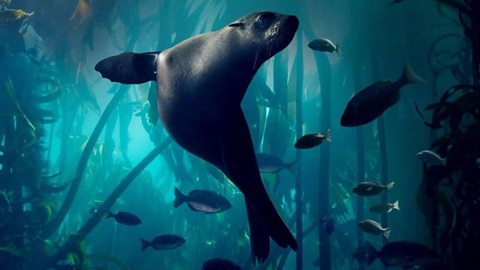
Go Jetters - Environment, weather and climate. collectionGo Jetters - Environment, weather and climate
This collection of Funky Facts clips from Go Jetters focuses on environment, weather and climate. The videos are suitable for use with EYFS and KS1 pupils and include links to free, supporting resources from Twinkl.
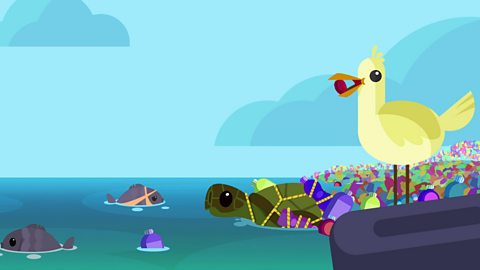
Life Lessons - Human impact on the environment. videoLife Lessons - Human impact on the environment
This short film looks at the impact of humans on ecosystems and the environment by focusing on the penguins of Boulders Beach, Simon's Town, South Africa. Suitable for use with 7-14 year-olds.
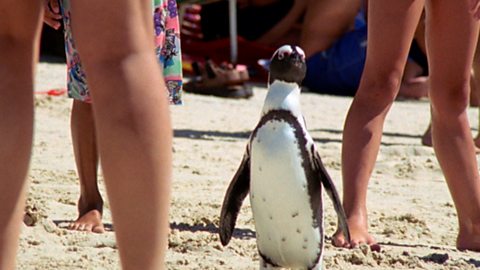
What is climate? videoWhat is climate?
This short film for primary pupils explains the difference between weather and climate and shows the different climate zones around the world. It could provide a starting point for discussion about how climate change might affect these zones in the future and the impact this might have on humans, animals and plants.
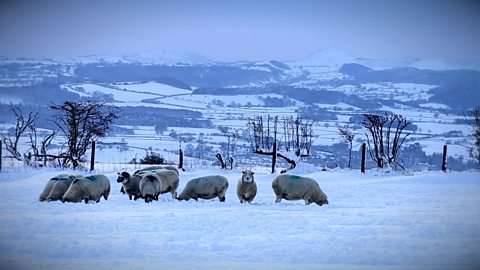
William Whiskerson - Living in an eco-village. videoWilliam Whiskerson - Living in an eco-village
Aimed at 5-7 year olds, this short film sees William Whiskerson take pupils on a tour of an eco-village in Shropshire, where he learns how it has been adapted to save energy through the use of solar panels and triple glazing.
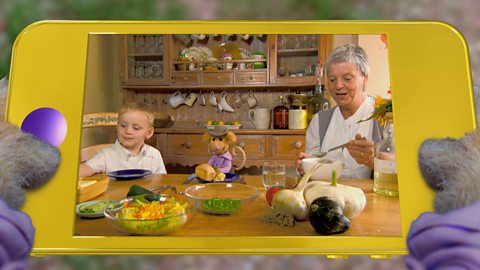
School Radio - Climate Change. collectionSchool Radio - Climate Change
A School Radio assembly framework which uses video, audio and related content to help pupils aged 7-11 to explore issues around climate change.
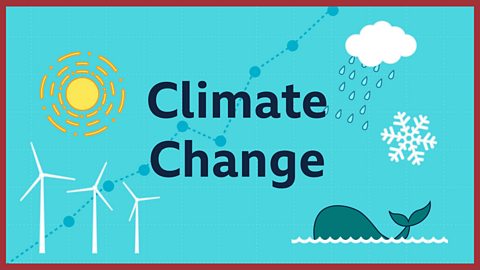
Secondary resources
Explore our secondary collection including a series in which Ade Adepitan travels to places on the frontline of climate change.
The Regenerators: Green Scenes. activityThe Regenerators: Green Scenes
A classroom activity which lets students express their feelings and opinions about climate change and the environment, with inspirational videos and worksheets provided.
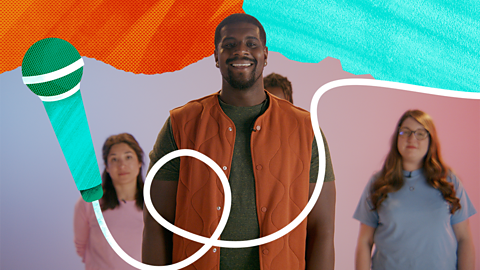
The Regenerators: Green Themes Explained. collectionThe Regenerators: Green Themes Explained
A collection of short films for secondary-aged students to help explain the conversation and language used around climate change and the environment.
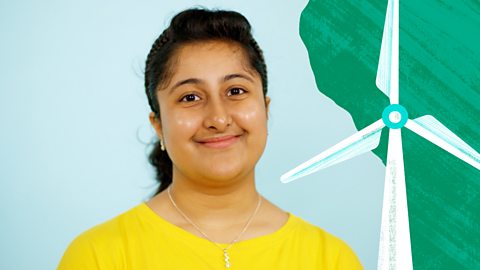
Climate Change - Ade on the Frontline. collectionClimate Change - Ade on the Frontline
In this series of short films for secondary schools, Ade Adepitan travels to places on the frontline of climate change to see the damage caused and how we can fight it.
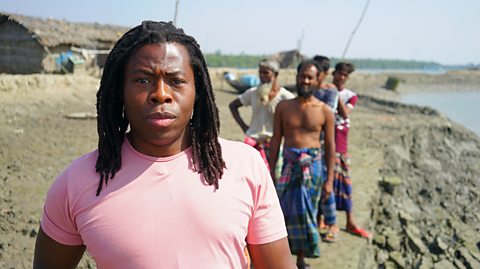
WW1: Can the Treaty of Versailles help us tackle climate change? documentWW1: Can the Treaty of Versailles help us tackle climate change?
This interactive guide looks at whether the legacy of the Treaty of Versailles, and the trend set of discussing world affairs in big, open, international conferences, is still a useful model for tackling the complex challenge of climate change today.
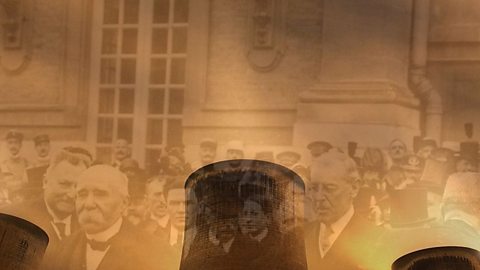
Physical Geography with Liz Bonnin. collectionPhysical Geography with Liz Bonnin
Presenter Liz Bonnin introduces some of her favourite geography clips from the łÉČËżěĘÖ archive, including a look at the effects of climate change in the UK.
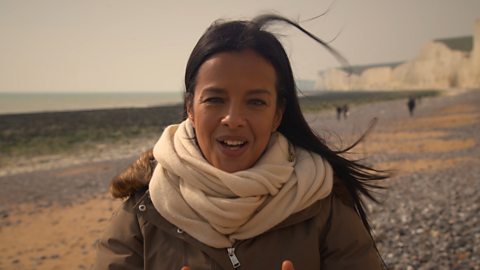
Internal learning-related resources:
- Newsround - Greta Thunberg: 16-year-old climate activist inspired international youth movement
- Newsround - Climate change: What is it and why is everyone talking about it?
- Newsround - 5 firsts for climate change
- Newsround - Air pollution: Kids help with research
- Newsround - Climate change: New tests to see how carbon dioxide can be removed from the air
- Newsround - Climate change: Scientists concerned about future of Antarctic glacier
- Newsround - What is the problem with plastic?